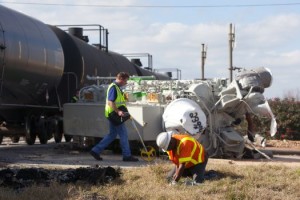 Celebrate the Planet | All Day | Three-Day Festival.
Celebrate the Planet | All Day | Three-Day Festival.
April 24-25-26
10AM – 6PM | Fair Park | Free Admission
Come by the Public Citizen booth (#5404 in Centennial Hall) and say howdy
Click here for more information
 Celebrate the Planet | All Day | Three-Day Festival.
Celebrate the Planet | All Day | Three-Day Festival.
10AM – 6PM | Fair Park | Free Admission
Come by the Public Citizen booth (#5404 in Centennial Hall) and say howdy
Click here for more information
Posted in Global Warming | Tagged Texas |
Check out this NBC News’ 30 seconds to know segment on how solar power works. Pretty cool.
Renewable energy clears the Air, reduces electric bills, creates jobs, waterproofs our energy supply and kept the lights on during peak times during the drought years when our “baseline” generation was unable to keep up with the demand.
Now check out our earlier post about the move in the Texas legislature to abolish renewable energy programs in the state. The bill that would do that, SB 931, heads to the Texas House of Representatives next. If you live in Texas, now is the time to call your Representative to voice your opposition to this anti-renewable energy bill. If you don’t know who represents you, look it up.
Posted in Global Warming | Tagged Texas |
 UPDATE – HB 1690 passed 94 to 51 with 15 amendments adopted (3 of these were amendments to amendments) of the 24 offered on April 21. It was still a bad bill in the end.
UPDATE – HB 1690 passed 94 to 51 with 15 amendments adopted (3 of these were amendments to amendments) of the 24 offered on April 21. It was still a bad bill in the end.
Despite Governor Abbott’s call for ethics reform, House Bill 1690 is actually an anti-ethics bill. Rather than restoring public confidence in government, it sets the stage for crony politics and political favoritism, and is another scandal in the making.
Like Senate Bill 10, HB 1690 creates a special legal system with special treatment reserved for Texas elected officials and state employees. This system is designed to stymie criminal investigations and prosecutions. Prosecuting a corrupt official will require the approval of both the Texas Rangers and a local prosecuting attorney. This will operate as a political filter and give a green light for cover ups and corruption.
In the vast majority of states, including Texas, public integrity cases—like all criminal cases—are handled by a local prosecutor in the county where the offense occurs. Only one state has the highly unusual and suspect “hometown venue with a hometown prosecutor” provision.
Under HB 1690, no matter where a crime is committed, a politician will be prosecuted by his or her hometown officials – essentially ‘home cookin.’ This raises the legitimate question of whether local prosecutors, judges or even juries could be truly independent when dealing with a prominent local political figure.
Under HB 1690, a politician will be prosecuted by his or her hometown officials— but the funding for these types of cases is inadequate. Half of a million dollars is not enough to prosecute these complex cases, which will require moving evidence and witnesses to the hometown county. Counties will bear the costs.
The current system works. The Travis County Public Integrity Unit has pursued public corruption cases in a non-partisan fashion. Of the 21 elected officials it has prosecuted since 1978, 15 were Democrats and 6 were Republicans. The simplest solution is to fund that entity. Failing that, Texas needs to find the toughest independent prosecutors in the state and put them to work cleaning up corruption at the Capitol.
As we see it, we have three options with this bill which goes before the House shortly for a vote:
Continue Reading »
 Energy efficiency upgrades are widely accepted to be the cheapest way to meet energy needs, yet many businesses don’t make such upgrades because of the up-front costs. That’s why the Texas Legislature passed a law in 2013 to make Property Assessed Clean Energy (PACE) programs for commercial properties possible in Texas.
Energy efficiency upgrades are widely accepted to be the cheapest way to meet energy needs, yet many businesses don’t make such upgrades because of the up-front costs. That’s why the Texas Legislature passed a law in 2013 to make Property Assessed Clean Energy (PACE) programs for commercial properties possible in Texas.
PACE programs allow property owners to pay for energy efficiency, renewable energy and water conservation measures through low interest loans that are repaid through property tax bills. This mechanism spreads the cost of the upgrades out over time and reduces risk for the property owner because the loan is attached to the property, not the individual.
Until recently though, no PACE programs had been established in Texas. In March, Travis County became the first county in Texas to create a PACE program. The program will allow property owners to choose specific water conservation and energy saving improvements that fit each property’s individual needs.
Just how beneficial is the Texas PACE program? It helps in the local search of “finding the sweet spot in the public policy process where people, natural resources, and the economy are best served”, as Judge Eckhardt told Texas Government Insider. After all, the main goal of the Texas plan is to attain water protection, energy-efficiency developments, and renewable retrofits- all of which would be obtained through economical loans. Texas really is trying to do everything… big.
Keeping PACE in Texas made this first Texas PACE program possible by convening stakeholders to develop a toolkit for local governments to use when creating PACE programs. Not only should other counties follow Travis County, but they should also follow the other 30 states and District of Columbia that have employed PACE programs. With the help of passionate sponsors and volunteer stakeholders, any county can adapt the PACE program, just like Travis County did with its plethora of sponsors and 130 volunteers.
Posted in Efficiency, solar | Tagged PACE, property assessed clean energy, Texas |
 UPDATE: SB 709 passed in the Senate on Thursday, April 16 and then passed in the House on Thursday, April 30.
UPDATE: SB 709 passed in the Senate on Thursday, April 16 and then passed in the House on Thursday, April 30.
Texas legislators have once again taken aim at the long-standing contested case hearing process that provides opportunity for public participation in ensuring an environmental permit is protective of public health and the environment.
Senate Bill 709 by Senator Fraser and its companion House Bill 1865 by Representative Morrison reduce public participation and rights in a Texas Commission on Environmental Quality (TCEQ) contested case hearing for an environmental permit application.
The changes to the state’s permitting process proposed in SB 709 reduce the rights of Texans to participate effectively in the permitting process on the basis that the contested case process has become burdensome to the state’s ability to competitively attract businesses due to the uncertainty created by the threat of a lengthy permit process.
However, the truth is that there are just not that many permit applications that are affected by the contested case hearing process. In 2014, there were 1,960 applications received by TCEQ. Of those applications, only 10 were referred to the State Office of Administrative Hearings – that’s only one half of one percent of applications received in that calendar year. The other 99.5% of permit applications to the TCEQ go uncontested and are processed and issued in time-frames similar to or even faster than our neighboring states that we compete closest with for business.
If this bill is enacted into law, the contested case process that has a track record of improving permits and protecting the environment from the biggest and longest lasting environmentally hazardous projects, would be substantially amended.
First, the length of any hearing would be limited to 180 days without regard to specific needs of parties. This time frame does not allow sufficient time for meaningful discovery, or analysis of the facts removing any discretion by the Administrative Law Judge to grant an extension of time even when such a denial would deprive a party of due process.
These bills would also allow the TCEQ to deny a hearing request based on the merits of the application without allowing an opportunity for discovery, presentation of the evidence, or cross examination. The contested case hearing process was created to provide an affected party a chance to argue against the TCEQ decision in front of an impartial decision maker as part of a sound democratic system.
Further, the bill places the burden of proof on the wrong party by shifting it from the applicant to the protestant. In this legislation, the draft permit itself, is evidence that is presumed to be true that the permit meets all federal and state requirements declaring it protective of public health and the environment. However, this is often not the case of draft permits and if this bill passes the burden to find fault in a supposedly perfect draft permit shifts to the protestant. Protestants are often individuals or small organizations who often do not have the resources nor expertise to collect the necessary evidence to bring a strong a case against a large cooperation.
The bottom line is that the burden of proof should remain on the party seeking to change the status quo by filing permit. If an applicant wants to discharge waste into the air, water or land, it is their responsibility to show that they are using the best technology available, so that the activity can be done safely, rather than forcing an affected member of the public to prove otherwise.
Although most permits don’t go through the contested case hearing process, those that do are often the most significant permits that would allow the most pollution. In those cases, Texans should have the right to protect their health, land and livelihoods.
The contested case hearing process reflects longstanding Texas values of transparent and accountable government, private property rights, and local control. In a state where these values are held sacred it will be interesting to see how legislators handle these bills.
Email your state representative to voice your opposition to HB 1865 and SB 709.
Posted in Texas Legislature | Tagged contested case hearing, soah, Texas |
 Today, the Texas Senate passed Senator Fraser’s anti-renewable energy Senate Bill 931. If passed by the House, this bill will abolish two of Texas’ few renewable energy programs – the renewable portfolio standard and building of competitive renewable energy zone transmission lines.
Today, the Texas Senate passed Senator Fraser’s anti-renewable energy Senate Bill 931. If passed by the House, this bill will abolish two of Texas’ few renewable energy programs – the renewable portfolio standard and building of competitive renewable energy zone transmission lines.
Job growth, economic development, stable business climate – I thought those were conservative bread and butter. The wind industry should have earned the good graces of Texas lawmakers. Wind farms annually pay over $85 million in taxes to rural Texas counties, plus about $65 million in lease payments to landowners.
 And the solar industry is rapidly becoming a significant driver of Texas job growth as well. As of November 2014, there were almost 7,000 solar jobs in Texas. That’s a 68% increase from 2013, a job growth rate 24 times greater than in the Texas economy overall.
And the solar industry is rapidly becoming a significant driver of Texas job growth as well. As of November 2014, there were almost 7,000 solar jobs in Texas. That’s a 68% increase from 2013, a job growth rate 24 times greater than in the Texas economy overall.
And yet, the Texas Senate has decided that Texas should have no renewable energy goal and that it should be more difficult for the Public Utility Commission of Texas (PUC) to build transmission lines to prime areas for wind and solar energy development.
Abolishing the Texas renewable energy portfolio standard would cause a devaluing of the Texas Renewable Energy Credit (REC) market and would cause renewable energy developers to lose a revenue stream they counted on when making investments. Existing projects used REC revenue when applying for financing. Now developers will have to go back to their financers and let them know that the Texas market has changed, and not for the better.
Competitive renewable energy zones have been established and transmission lines built to bring electricity from west Texas to the parts of the state where electricity is needed. But that project is not yet complete. Some of the best areas for solar energy development still have no transmission lines.
So, just as the solar energy is really starting to boom, the Texas Senate has voted to put the brakes on the policies that would best be able to allow this industry, as well as the wind industry, to grow successfully.
SB 931 heads to the Texas House of Representatives next, now is the time to call your Representative to voice your opposition to this anti-renewable energy bill. If you don’t know who represents you, look it up.
Posted in Renewables, Texas Legislature | Tagged competitive renewable energy zones, CREZ, renewable portfolio standard, rps, Texas |
The following was written by Dale Ross, the mayor of Georgetown, Texas and published in Time on March 27th.
A decision such as that made by Georgetown might not be possible for other Texas utilities if SB931 passes. Read the Time article below to see why Georgetown made this move.
Georgetown is a city of 54,000 just north of Austin known for beautiful Victorian-era architecture around our historic courthouse square. Founded in 1848, we are home to Southwestern University, a small liberal arts college.
The City of Georgetown recently announced that our municipal electric utility will move to 100 percent renewable energy sources by 2017. That probably caught some folks by surprise. A town in the middle of a state that recently sported oil derricks on its license plates may not be where you’d expect to see leaders move to clean solar and wind generation.
No, environmental zealots have not taken over our city council, and we’re not trying to make a statement about fracking or climate change. Our move to wind and solar is chiefly a business decision based on cost and price stability. Continue Reading »
Posted in Renewables, solar, wind | Tagged Texas |
There’s plenty to be disappointed about with the Texas Legislature. The ill-conceived policy proposals that would harm the Texas economy, its residents, and the environment keep piling up. Sweeping changes for the better are off the table. However, there is still opportunity for incremental progress and for at for having conversations about important environmental, energy, ethics and consumer issues in Texas.
It might be a long time until we can get any policy home runs in Texas, but stringing together a bunch of singles is way better than forfeiting. We’re working to find common ground with progressives and conservatives to make improvements where we can.
House Bill 14 by Representative Morrison and Senate Bill 1619 by Senator Watson would extend the Texas Emissions Reduction Plan (TERP) programs, which reduce air pollution from diesel engines in trucks, construction equipment, buses, locomotives and harbor vessels. TERP is one of the best tools the state has to reduce smog and toxic diesel particulates. This bill would extend the programs, including a rebate program for electric and natural gas cars and provide some opportunities to reduce emissions from fracking.
House Bill 3810 by Representative Walle and Senate Bill 1787 by Senator Garcia would create a system to send emergency alerts via texts, tweets and reverse 911 calls to nearby residents when toxic chemicals are released from industrial facilities. Currently, many residents who live in industrial communities rely on sirens to let them know that it might be dangerous to go outside.
Senate Bill 1786 by Senator Garcia and House Bill 3809 by Representative Hernandez would allow Texas counties and cities to regulate the air pollution from storing and transporting petroleum coke, a by-product of petroleum refining. Toxic black soot that blows from rail cars and giant uncovered piles (as high as elevated highways) piles of petroleum code often coats people’s lungs, homes and cars.
Senate Bill 1501 by Senator Garcia and House Bill 3760 by Representative Peña would require scrap metal recycling facilities to use the best available pollution control technologies, such as fences and sprayers dust suppression, to reduce air pollution from fine metal particle that blow off the recycling facility. The respiratory diseases caused by breathing fine metal particles can be avoided.
Senate Bill 1894 by Senators Garcia and Hinojosa would require sea ports to take actions to reduce air and water pollution.
House Bill 3539 by Representative Dukes and Senate Bill 1626 by Senator Rodríguez would make it so that large residential developments can’t ban or restrict homeowners from installing solar at their properties. Currently, state law allows developers to ban or restrict solar installations while the development is being built out, which can take years. This bill would only allow solar bans or restrictions in developments with 50 or fewer lots.
House Bill 706 by Representative Farrar would make the tax exemption for solar and other renewable energy installations at homes and businesses permanent until the property is sold, rather than requiring property owners to file for exemption annually.
House Bill 2392 by Representative Anchia would direct the comptroller and the State Energy Conservation Office to establish a loan guarantee program for improvements that increase the energy efficiency of residences that are not newly constructed.
House Bill 2254 by Representative Sylvester Turner would bar electric companies from charging minimum usage fees in the competitive power market. Such fees penalize customers for using less electricity and therefore reduce the incentive for customers to be as efficient as possible with their electric use. Minimum usage fees also often cause bill increase for customers who can’t afford them.
House Bill 3363 by Representative Keffer would adjust the financial requirements for property assessed clean energy (PACE) programs that will make PACE programs for residential property feasible. PACE will help homeowners pay for renewable energy, energy efficiency and water efficiency improvements through low-cost loans that are tied to the property, not the individual, because they are repaid on participants’ property tax bills.
Senate Bill 1284 by Senator Watson and House Bill 3343 by Representative Sylvester Turner would establish customers’ rights to participate in demand response programs. Demand response programs provide payment to customers for reducing their electric use. Demand response is an affordable way to avoid using inefficient gas-fired power plants when electric demand is especially high. The bill would direct the Electric Reliability Council of Texas (ERCOT) to encourage development of demand response programs and encourage customers to participate.
House Bill 3069 by Representative Eddie Rodriguez and Senate Bill 1954 by Senator Hinojosa would require the Texas Commission on Environmental Quality (TCEQ) to develop a state compliance plan to meet the requirements of the Clean Power Plan, which will reduce greenhouse gas emissions.
House Bill 2901 by Representative Rodriguez and Senate Bill 1865 by Senator Zaffirini would improve accountability to the public within the Railroad Commission (RRC) by creating a clear process for citizens to file complaints to the commission, including a website listing the information the RRC would need to begin an investigation.
Posted in Texas Legislature | Tagged Texas |
 Public Citizen calls for strengthening SB 19 the Senate ethics bill during Monday, March 30 testimony in the Texas Senate Finance Committee.
Public Citizen calls for strengthening SB 19 the Senate ethics bill during Monday, March 30 testimony in the Texas Senate Finance Committee.
As a member of the Texas Anti-Corruption Campaign (TAC), Public Citizen’s Texas office called for strengthening the Texas state senate bill aimed at combating government corruption. The 12-member alliance also released a fact sheet (see attached) detailing scandals that have cost Texas taxpayers more than $1 billion in the past decade.
Tom “Smitty” Smith, TAC member and director of Public Citizen’s Texas office, described Senate Bill 19 as a good first step that is still too weak to resolve the corruption crisis gripping the Capitol. He called for adding amendments that would go further to close the revolving door for lobbyists, state employees and contractors; strengthen requirements for disclosure of public officials’ financial information; and toughen conflict of conflicts of interest laws.
“We agree with Gov. Abbott that corruption in Texas government amounts to a state of emergency,” said Smith, who testified before the Senate State Affairs Committee (see attached). “Day after day, headlines reveal abuses in contracting, pay to play politics that result in payoffs to big donors and former officials gaining riches by stepping through the revolving door. Senate Bill 19 addresses important areas of reform, but it’s not nearly comprehensive enough. We need more teeth in the bill so that it forces transparency and ends pay-to-play politics as well as closes the revolving door.”
Smith drew attention to the fact sheet released by the alliance, which summarizes more than a dozen cases of misappropriation, contract scandals, pay-to-play politics and mismanagement. Together, the cases have cost taxpayers more than $1 billion in wasted funds.
“When we add up the damages, we calculate more than a billion dollars wasted or lost to corruption or mismanagement,” Smith said. “The measure of any ethics reform should be that it puts an end to these kinds of corruption. The bill must be strong enough to ensure that public officials and their allies in private business can no longer dip into the pockets of Texas citizens.”
Posted in Ethics, Texas Legislature | Tagged Texas |
Parras: Trains carrying oil an accident waiting to happen: Officials should back federal efforts to strengthen crude transport safety
By Juan Parras | Houston Chronicle | March 27, 2015 | bit.ly/1BWIv2U

Crews work to clean up a wreck after an 18-wheeler collided with a train at the HWY 290 frontage road and Tegle Road Friday, Jan. 25, 2013, in Cypress, TX. (Cody Duty / Houston Chronicle)
It’s no secret that Houston is an oil-train derailment waiting to happen and that people would be killed in the disaster, possibly dozens or even hundreds of them.
In the most recent of many derailments of trains carrying highly flammable Bakken oil, 21 cars went off the tracks near Galena, Ill. The disaster sent fireballs into the air and caused a blaze that lasted for days. No one was killed or wounded; it happened in a wooded area outside of town.
In Houston, we would never be so lucky.
Sixty-six to 200 Bakken oil train cars go through our city every week – about 3,500 to more than 10,000 every year, according to Texas Department of Public Safety. The rail lines that carry them run from northwest Houston right through downtown and then split into multiple tracks in the East End before reaching the Houston Ship Channel and refinery district.
Living in Houston is like sitting on top of an oil-train time-bomb, and all it takes is a drive along the freight-train tracks to see that.
Downtown, the tracks run by family courts, the county jail, the District Attorney’s Office, juvenile court, and the University of Houston-Downtown campus, not to mention the high-rise buildings that employ thousands of people. When an oil train derailed in the town of Lac-Mégantic, Quebec, 47 people were killed. How many would die if there were a derailment on a weekday in downtown Houston when the streets are crowded with students, families and workers?
Going east from downtown, the freight train tracks pass through Midtown, Eastwood, the Navigation/Jensen area and the Third Ward with its huge complex of Section 8 housing. The tracks pass condos off of Navigation and Canal, the soccer stadium, the baseball stadium and then move into the Second Ward, Magnolia and finally on to the Manchester community. In all of these areas, the tracks cross major streets multiple times. The tracks border people’s backyards, pass within 100 feet, even 50 feet of schools, churches, community centers and playgrounds. If the Galena derailment happened in the East End, the fiery fallout would rain down on people’s houses.
In 2013 and 2014, there were eight oil train derailments Continue Reading »
Posted in Oil by Rail, Transportation | Tagged Texas |
 The cost of solar energy has dropped so much that the Pedernales Electric Cooperative (PEC), the nation’s largest electric cooperative, which serves a large area to the west of Austin, has announced a plan to significantly expand investment in this clean, affordable energy source.
The cost of solar energy has dropped so much that the Pedernales Electric Cooperative (PEC), the nation’s largest electric cooperative, which serves a large area to the west of Austin, has announced a plan to significantly expand investment in this clean, affordable energy source.
The measures adopted will encourage development of both large- and small-scale renewable energy, primarily solar. For large-scale developments, the co-op will work with its main power provider, the Lower Colorado River Authority (LCRA), to continue expanding the diversity of its generation portfolio with the addition of wind and solar resources. Utility-scale solar prices are now lower than electric prices from natural gas-fired power plants, with the added benefit of being fixed in price for 25-30 years.
Locally, the co-op will also build 30 megawatts of medium-sized solar installations, to be strategically placed at distribution stations and in locations near its biggest customers. Some of these installations will be open member subscription through a new community solar program.
The co-op will also establish an on-bill financing program that will provide low-interest loans to assist customers with the up-front cost of on-site renewable (primarily solar) energy projects.
The strategies adopted are intended to help the co-op reach its 30 percent renewable energy goal and expand the use of distributed local solar while maintaining affordable rates.
“This is a big victory for the customers of PEC who began organizing to get solar and wind power programs 8 years ago,” said Tom “Smitty” Smith, PEC member and director of Public Citizen’s Texas Office. “As a result of the efforts of its owner members, and the strong leadership of its board and executives, the co-op has developed the largest commitment to solar energy of any co-op in the country.”
PEC places a strong emphasis on reliability, providing excellent member service and keeping rates low. Favorable renewable energy prices and a changing energy market that increasingly includes customer adoption of solar allow the co-op to meet all of these goals at once. The co-op also just recently reduced electric rates for customers.
As water constraints continue in Central Texas, transitioning to renewable energy sources will help preserve precious water resources for domestic consumption that are currently allocated for energy production. Wind and solar are drought-proof energy sources that require little or no water to operate.
PEC’s move to embrace solar puts the co-op in good company. The City of Georgetown recently announced a large new solar contract that would help the city be powered by 100 percent renewable energy by 2015.
 The Texas Senate is considering Senate Bill 10, which is basically a politicians’ protection plan.
The Texas Senate is considering Senate Bill 10, which is basically a politicians’ protection plan.
Corruption in state government is so bad that Governor Abbott declared ethics reform an emergency shortly after taking office earlier this year. But instead of making the tough changes necessary to stop corruption in the capitol, the Senate is about to vote on SB10, which will make it easier for public officials to get away with unethical and illegal conduct. It’s another scandal in the making.
Email your state senator to let him or her know you don’t support the SB 10.
It has been suggested that SB10 should be renamed the “Corrupt Incumbent Official Indemnification Act.” It creates a special legal system reserved for elected and other public officials, and constructs a complex maze designed to stymie criminal investigations and prosecutions. If the bill becomes law, prosecuting a corrupt official will require the unanimous approval of the Attorney General, the Texas Rangers, the presiding judge of the judicial region where the accused resides, and a local prosecuting attorney. This unnecessarily complicated series of review will operate as a political filter and give a green light for cover ups and continued corruption.
And the current attorney general may not be the best person to investigate others for ethics violations. On May 2, 2014, then-candidate Ken Paxton signed an agreed order with the Texas Securities Commission. He admitted to referring clients to his friend’s investment company even though he was not a registered securities representative, and failing to disclose a 30 percent kickback he received on investment management fees. He claims it was an honest mistake but he should have known better. While in the legislature, Paxton voted in favor of the statute that outlawed such conduct. And he later voted to amend that statute to specify that those violations are a third-degree felony. So how tough do you think Paxton is going to be on corrupt elected officials?
SB10 is based on a false premise: that the counties who elect public officials will hold them more accountable. But how tough are members of the courthouse cabal likely to be on a wayward politician in his or her hometown? Historically, the good old boy system has been a powerful deterrent to effective and tough local prosecution. Over the last 40 years we have had scandals in Duval, Hidalgo, Cameron and Dallas counties that involved corrupt elected officials who were protected by the local political machines. It often took bringing the FBI in to clean up the mess.
Home cookin’ – The bill’s sponsors suggest that fairness to the defendants in this special class of cases dictates that they be prosecuted in their home counties. But criminal prosecutions of all kinds are generally tried in the county where the crime occurred—in public corruption cases, that is usually in the seat of government. And in the vast majority of states, including Texas, public integrity cases are handled by a local prosecutor in the county where the offense occurs. In a few states, the attorney general prosecutes these cases, but again, usually where the crimes occur. Only one state—Wisconsin—has a “hometown venue with a hometown prosecutor” provision.
There are some who say that the Travis County District Attorney’s office is too partisan and are using that excuse as a reason to move prosecution of public corruption cases away from the seat of government. The reality is that the Travis County Public Integrity Unit (PIU) has pursued public corruption cases in a non-partisan fashion. Of the 21 elected officials it has prosecuted since 1978, 15 were democrats and 6 were republicans.
What can be done to assure tough prosecution? After burying SB10 without a eulogy, the existing system, which works well and gets to the heart of corruption, should be fully funded. Failing that, Texas needs to find the toughest independent prosecutors in the state and put them to work cleaning up corruption at the capitol.
So what can citizens do? Email your state senator and ask them to vote against SB10, the politicians’ protection plan. For even more impact, call his or her office to make your view known.
Don’t know who represents you? Click here to find out who your state senator is. Contact info is below the jump.
Continue Reading »
Posted in Ethics, Good Government | Tagged Texas |
The City of Georgetown announced yesterday that it will provide the entire city with clean, affordable renewable energy by 2017. This is thanks to new contract with Sun Edison to provide 150 megawatts of solar energy by the end of 2016 and the City’s existing wind energy contracts.
The primary reason cited by the City for choosing 100% renewable energy is to protect customers against volatile and rising fossil fuel energy costs and regulatory uncertainties. A recent Public Citizen report shows this is a wise financial move. That report demonstrates that shifting from coal power to alternative energy sources could result in significant savings for electric utilities and their customers. The switch will also save the Texas public in pollution-related health care costs and economic losses due to premature mortality.
Wind and solar are clean, safe, and financially sound energy options. As our report shows, it’s no longer clean energy that’s expensive. Now it’s coal that is too costly to continue.
Georgetown’s 25-year contract with Sun Edison will protect its ratepayers from natural gas price spikes and from costs associated with old coal plants. Wind and solar energy prices are predictable and affordable because they have no fuel costs and don’t pollute.
Switching to renewable energy also reduces water use. As water scarcity continues in Texas, drought-proof energy sources are increasingly important. Wind power requires no water and solar only uses a small fraction of what fossil fuel energy sources use. Water has been a limiting factor for energy production for fossil fuel generators and will likely continue to be in the future.
If more Texas cities follow Georgetown’s lead, our state will be in a better positions to tackle the challenges of reduced water supplies, unhealthy air pollution, and fluctuating fossil fuel prices. This is an exciting time, because utilities no longer have to choose between clean energy and affordable energy – they are one in the same.
Posted in solar | Tagged Georgetown Texas, renewable energy, solar energy, Texas |
 There are two bills up for a hearing on Monday, March 23rd that would impact the ability of local communities to pass ordinances to protect the well-being of its citizens around fracking. We encourage all those concerned about defending their right to local control to attend the hearing and testify or if that is not possible, contact the offices of the members of the committee and let them know how you stand before the hearing.
There are two bills up for a hearing on Monday, March 23rd that would impact the ability of local communities to pass ordinances to protect the well-being of its citizens around fracking. We encourage all those concerned about defending their right to local control to attend the hearing and testify or if that is not possible, contact the offices of the members of the committee and let them know how you stand before the hearing.
HB 40 – Darby | et al. – Relating to the express preemption of regulation of oil and gas operations and the exclusive jurisdiction of those operations by the state.
HB 539 – King, Phil | et al. -Relating to the procedural requirements for the adoption of a municipal regulation, limitation, or prohibition on the production, storage, or transportation of oil or natural gas; authorizing a fee.
These two bills are scheduled for a hearing in the House Energy Resources Committee on Monday, March 23, 2015 at 2:00 PM or upon final adjournment/recess of the Texas House. The committee hearing will be in the Capitol Extension in room E2.010. The members of that committee are listed below the jump.
Continue Reading »
Posted in Fracking, Good Government | Tagged #defendlocalcontrol, Texas |
![]() Get the Facts on Consumer Costs and the EPA’s Clean Power Plan
Get the Facts on Consumer Costs and the EPA’s Clean Power Plan
For more information, view the fact sheet (PDF).
Today, the U.S. House Committee on Energy and Commerce is holding a hearing on the legal and cost issues associated with the U.S. Environmental Protection Agency’s proposed rule to curb greenhouse gas emissions from existing power plants.
The rule, also called the Clean Power Plan, will lower consumer bills, benefit the economy and boost public health, while helping to combat climate change, according to a fact sheet released today by Public Citizen. Electricity bills will be 8.4 percent lower by 2030 and the plan will contribute between $260 billion and $840 billion to the economy over 10 years.
Posted in Global Warming | Tagged Texas |